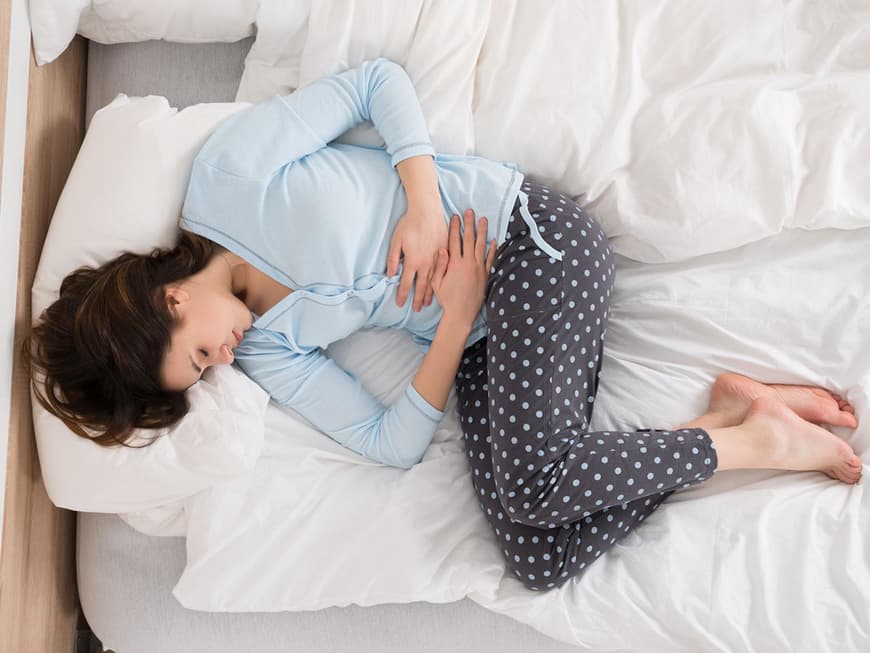
PCO syndrome: what is it?
The follicles in the ovary die under the influence of male hormones and the egg cannot mature. As a result, ovulation in PCOS either does not occur at all or only rarely - the woman can therefore not get pregnant at all or only with great difficulty.
With the syndrome, no corpus luteum can develop, which determines the cycle in the second half. This results in the cycle disorders typical of the disease: The intervals between periods lengthen, sometimes the bleeding stops altogether. The death of the follicles results in many small scars in the ovary. And the scarred tissue can then hardly produce any hormones.
PCO syndrome: cause and symptoms
The cause of the syndrome is still not clear, but hereditary factors, an underactive thyroid or permanent stress are suspected to trigger the disease. The pill helps those affected, and women who wish to have children are given cortisone preparations that suppress the production of male hormones.
What happens with PCO syndrome
Many sufferers have small cysts in the ovaries, known as polycystic ovaries. This is due to too many male hormones being produced in the adrenal glands. Due to these hormones, the follicles cannot mature and die. In the long term, this results in the ovarian tissue becoming scarred and no longer producing female sex hormones. The contraceptive pill or medication containing cortisone can be used as treatment.
Diet for PCOS
In addition to genetic factors, personal lifestyle is also considered a trigger, especially when it comes to diet. Because it is closely linked to the metabolism, diet also plays a major role in PCOS. With the right foods, it can therefore be managed quite well.
Avoid products that promote inflammation
Patients should remove some things from their shopping list, especially products that promote inflammation. The biggest culprits are isolated carbohydrates, i.e. sugar and white flour. "They contain nothing that your body can utilize. No fiber, no vitamins, no minerals," says nutritionist and author Andrea Thalheimer.
Green vegetables, plenty of protein and good fats
Dairy and soy products and fruit with a high fructose content also fuel inflammation. However, green vegetables such as broccoli, spinach and leaf lettuce should be eaten all the more frequently. Pulses, quinoa and lean meat also provide plenty of protein. You shouldn't skimp on rapeseed, coconut and olive oil either. "Fats are very important for the hormone balance," says the expert. "Avocado in particular is a miracle weapon. As well as lots of omega-3 fatty acids, it also contains vitamin E, which stimulates progesterone production." Women with PCOS often lack this hormone.
Our book tip: Andrea Thalheimer: "Healing recipes for PCO syndrome". 17.99 euros. Riva
You might also be interested in this:
Cyst surgery: When is surgery advisable?
Diagnosis of endometriosis: The underestimated disease
PCO syndrome: symptoms, causes and treatment
Irregular periods: These could be the reasons
Intermenstrual bleeding: What could it mean?
Stopping the pill: What happens in our body when we do
PMS - When hormones and period pains drive us crazy






